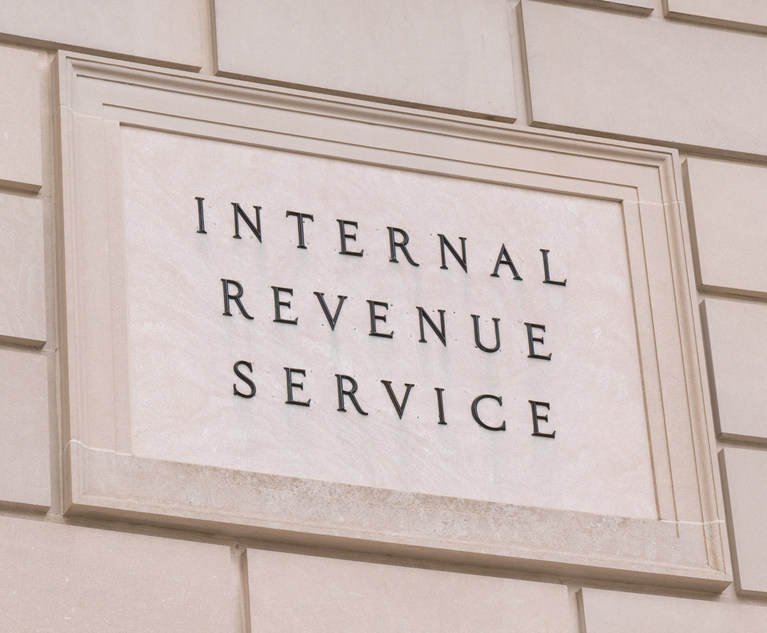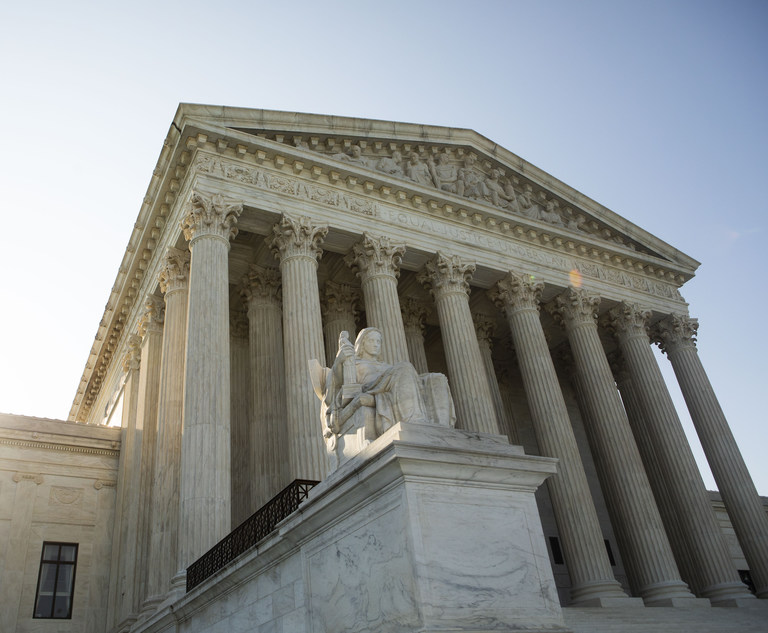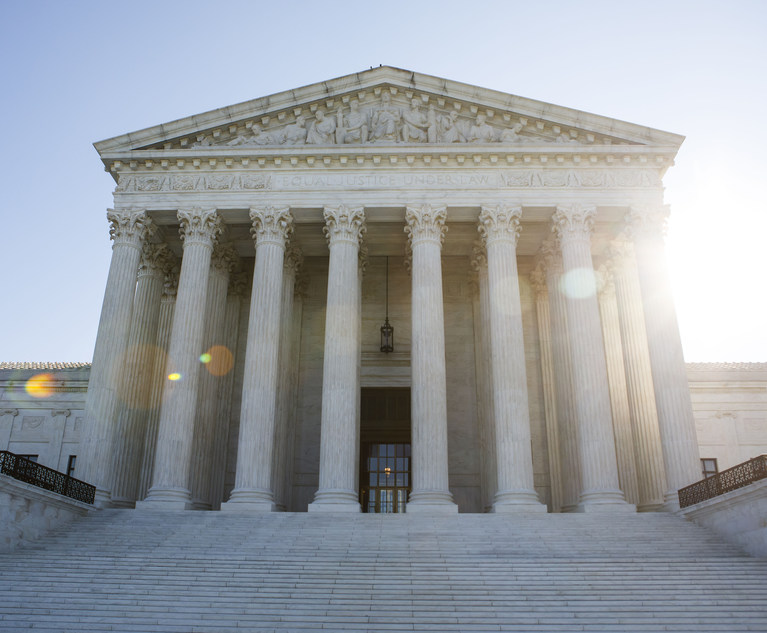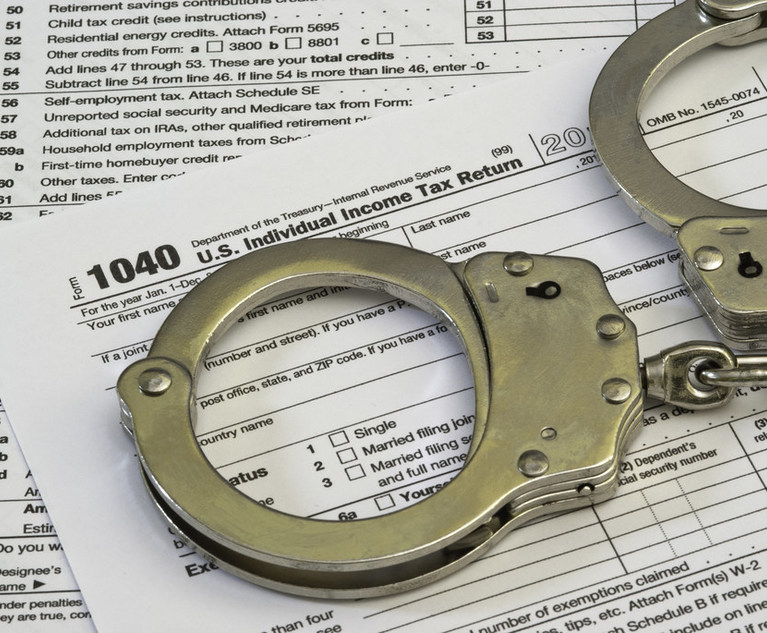Jeremy H. Temkin

March 16, 2023 | New York Law Journal
US Supreme Court Gives Taxpayers an FBAR WinOn Feb. 28, the U.S. Supreme Court issued a 5-4 decision in Bittner v. United States that cut across ideological lines and, in a victory for taxpayers, limited the IRS to a single $10,000 penalty regardless of how many accounts should have been reported in a given year.
By Jeremy H. Temkin
10 minute read

January 18, 2023 | New York Law Journal
U.S. Supreme Court To Address the IRS's Summons AuthorityOn Dec. 9, 2022, the court granted a writ of certiorari in 'Polselli v. IRS' to address a two-decade old Circuit split regarding the scope of the Internal Revenue Service's obligation to provide notice when it seeks records in connection with its efforts to collect past due taxes.
By Jeremy H. Temkin
9 minute read

November 16, 2022 | New York Law Journal
Litigating IRS Penalty ApprovalGiven that the Tax Court applies the law as interpreted by the Court of Appeals in the Circuit where the taxpayer lives, the varying interpretations of the supervisory approval requirement mean that liability for substantial penalties may turn on where the taxpayer resides.
By Jeremy H. Temkin
9 minute read

September 14, 2022 | New York Law Journal
Federal Tax Enforcement: Past, Present and FutureThe Inflation Reduction Act, which was signed into law last month, reverses the trend of diminishing resources by including almost $80 billion in additional funding for the IRS over the next 10 years.
By Jeremy H. Temkin
8 minute read

July 20, 2022 | New York Law Journal
FBAR Penalties Go to the Supreme Court: Dueling Statutory InterpretationsThe Supreme Court agreed to resolve a split between the U.S. Courts of Appeals for the Fifth and Ninth Circuits over the correct interpretation of 31 U.S.C. §5321(a)(5)(A), which caps the civil penalty applicable to non-willful FBAR violations at $10,000.
By Jeremy H. Temkin
9 minute read

May 18, 2022 | New York Law Journal
'Boechler': A Day Late, But Not Necessarily a Dollar ShortLast month, In 'Boechler, P.C. v. Commissioner of Internal Revenue', the U.S. Supreme Court unanimously held that a 30-day deadline for filing a petition is not jurisdictional and that the Tax Court can apply principles of equitable tolling in deciding to hear delinquent petitions. In this edition of his Tax Litigation Issues column, Jeremy H. Temkin examines the opinion and considers its implications.
By Jeremy H. Temkin and Rachel Fleig-Goldstein
9 minute read

March 16, 2022 | New York Law Journal
Judge Jackson and the Act-of-Production DoctrineAlthough Judge Jackson's advocacy in 'Ponds' does not necessarily foreshadow where she will land on cases that will come before the nation's highest court, her thoughtful approach to the complex constitutional issues presented in 'Ponds' supports the view that criminal defendants of all stripes should welcome her appointment.
By Jeremy H. Temkin
9 minute read

January 19, 2022 | New York Law Journal
Application of the Attorney-Client Privilege to Client IdentitiesEarlier this Term, the Supreme Court declined to review a Fifth Circuit decision upholding a John Doe summons requiring a law firm to disclose the identities of clients to the IRS. In this edition of his Tax Litigation Issues column, Jeremy H. Temkin addresses the Fifth Circuit's opinion, and writes: By declining to take up the issue, the Supreme Court has, for the moment, left it to the lower courts to establish the appropriate limits of John Doe summonses in this context, and 'Taylor Lohmeyer' provides instructive guideposts to practitioners litigating application of the privilege to such circumstances.
By Jeremy H. Temkin
9 minute read

November 17, 2021 | New York Law Journal
The Revenue Rule and International Tax CollectionIn this edition of his Tax Litigation Issues column, Jeremy H. Temkin reviews the Revenue Rule and considers the apparent lack of enthusiasm for non-judicial Mutual Collection Assistance Requests designed to bypass the Rule, all pointing to the obstacles encountered by foreign governments pursuing tax revenues in the United States.
By Jeremy H. Temkin
10 minute read

September 15, 2021 | New York Law Journal
Establishing a 'Cheek' Defense Through Expert TestimonyIn 'Cheek v. United States,' the Supreme Court established the government's burden of proof to show that a defendant acted "willfully" in order to obtain a conviction on criminal tax charges. In this column Tax Litigation Issues, Jeremy H. Temkin analyzes recent circuit court decisions rejecting claims that defendants were improperly deprived of their ability to present a 'Cheek' defense through expert testimony.
By Jeremy H. Temkin
9 minute read
Trending Stories
- 1Senate Confirms Last 2 of Biden's California Judicial Nominees
- 2Morrison & Foerster Doles Out Year-End and Special Bonuses, Raises Base Compensation for Associates
- 3Tom Girardi to Surrender to Federal Authorities on Jan. 7
- 4Husch Blackwell, Foley Among Law Firms Opening Southeast Offices This Year
- 5In Lawsuit, Ex-Google Employee Says Company’s Layoffs Targeted Parents and Others on Leave
More from ALM
- Scan In Progress: Litigators Leverage AI to Screen Prospective Jurors 1 minute read
- Legal Speak at General Counsel Conference East 2024: Match Group's Katie Dugan & Herrick's Carol Goodman 1 minute read
- Legal Speak at General Counsel Conference East 2024: Eric Wall, Executive VP, Syllo 1 minute read



